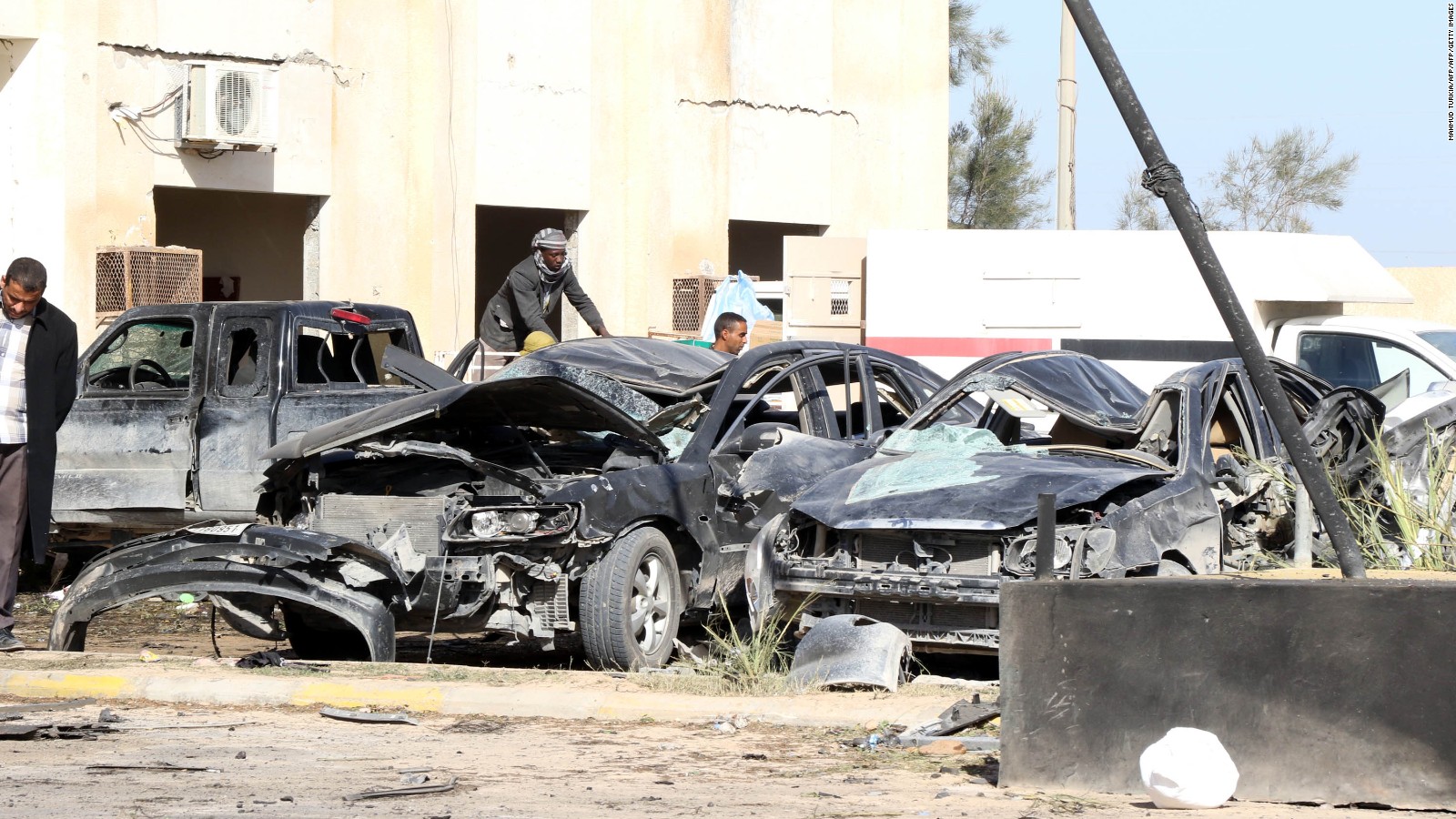
Story highlights
Tripoli, Libya A truck bomb ripped
through a police training center Thursday in a western Libyan town, killing at least 50 people, the town's mayor said.
The vehicle plowed into the facility in Zliten, where about 400 people -- most of them policemen -- had gathered for a morning assembly, and exploded, according to Zliten Mayor Moftah Ahmadi.
As of midday Thursday, authorities had managed to identify about 30 of the dead. Most of them were police officers or trainees.
It was not immediately known who was behind the attack.
Located along the Mediterranean Sea, Zliten sits about 40 miles (65 kilometers) west of Misrata and 105 miles east of the Libyan capital of Tripoli.
The oil-rich nation of Libya was long ruled by authoritarian leader Moammar Gadhafi, who overthrew King Idris I in a 1969 military coup. Demonstrations against Gadhafi in 2011, as part of the broader populist Arab Spring movement, led to a civil war that climaxed with Gadhafi's October 2011 killing by rebel forces in his hometown of Sirte.
Gadhafi's death was followed by elections and a new government, but not stability and peace.
Instead, Libya has been mired in insecurity as the central government in Tripoli has struggled to establish itself amid persistent rancor and questions about its ability to govern. This vacuum opened the door for powerful militias and Islamist militant groups -- including Ansar al Sharia and Wilayat al-Barqa, the Libyan branch of ISIS.
In the past year, that ISIS arm has claimed credit for thepublicized beheading of 21 Christians on a Libyan beachamong other mass executions of detainees, thekidnapping of about 20 medical workers from a Sirte hospital, and numerous bombings.
Yet there have also been glimpses of hope for a better future, like the U.N.-brokered peace deal signed last month by various warring factions.
The United States expressed hope that Thursday's bombing and other recent attacks, including one Monday on oil terminals in As-Sidra and Ras Lanuf, will spur Libyan leaders to implement the plan sooner rather than later.
"These incidents stress again the urgent need for Libya's new leaders to formalize the Government of National Accord," the State Department said, according to a statement from spokesman John Kirby. "This is a vital step to address the country's critical humanitarian, economic and security challenges."

